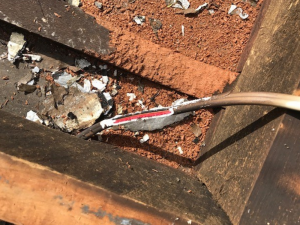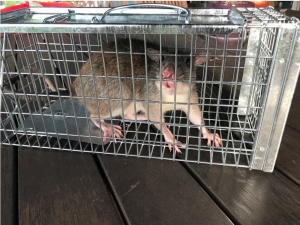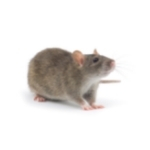Rodents
Why Rodents are Pests
Rodents are pests for many reasons. Most of us consider them to be disgusting, and why shouldn’t we. In the wild, they’re dirty, messy, stinky creatures worthy of being caught in a trap. Sure, they can be great pets, but that’s not why you’re reading this, is it.
Here are a few reasons why rodents (mice and rats) are pests:
Rodents Carry Diseases
Both rats and mice are known disease carriers, with their infamy dating back to the middle ages and beyond. Remember the Black Death? Of course you won’t, you weren’t there, however it was a catastrophic bubonic plague pandemic that swept through Eurasia, North Africa and Europe in the mid 1300s. Up to 200 million people died. With much of the congested Middle Ages cities being infested with rats, it’s no surprise that they helped spread the disease through their bites and physical transportation of the disease.
Modern diseases spread by rodent faeces and bites include:
- Lymphocytic Choriomeningitis (LCMV)
- Leptospirosis
- Salmonella
- Hantavirus
Destruction of Domestic and Commercial Food Sources
Rats and mice seem to adore human food. In fact, they’ll eat just about any food source if they are hungry enough. General advice is to ensure all domestic food sources are kept in sealed containers, however rats can chew through a standard kitchen container if given enough time.
How many people leave their pet food bags or containers outside? Dry dog food bags are an easy target for rats and their droppings can make your pets sick if accidentally consumed.
Mouse plagues are a huge issue at the moment within our farming communities, they are literally destroying stock feed and contaminating large areas with their droppings and fur.
Rodents are also high risk in the food industry. A rodent infestation in a restaurant or similar eatery is a sure fire way to get closed down by the local health authorities.
Physical Damage Caused by Rodents
Rodents continually chew/knaw to maintain healthy incisor length. As well as having the ability to gnaw through many domestic plastic containers, they appear to enjoy chewing through home cabling routed through the internal walls of homes.
Rats and mice will nest in crawl spaces, footings and wall spaces and will continue to destroy their surrounds with their gnawing, faeces and urine. Sounds disgusting right?

Types of Rodents
Rattus rattus
- also known as roof/black rat
- its tail is longer than its body
- light brown to black in colour
- large eyes and ears
- common around rural stations and farms
- can live in the wild for up to one year
- prolific breeders

Rattus norvegicus
- also known as sewer/brown/white/Norway rat
- stocky with a short, thick tail
- small eyes and ears
- not as good a climber as the roof rat
- can be aggressive if cornered
- prolific breeders
Mus domesticus
- house mouse
- much smaller than rats
- longer nose
- long tail
- grey to brown colour
- small size enables them to squeeze through tiny openings
- prolific breeders

How to Identify a Rodent Problem
- you see them….frequently
- evidence of gnawing on containers and wiring
- sounds of activity in walls and ceilings
- smell of urine in walls
- droppings
- nests
- tracks through dust
- damage to food or consumption of food
Conclusion
As you can see, rodents (rats and mice) are most certainly an unwelcome and invasive pest. While the odd trap may sort out one or two cheeky critters, a small infestation will require the services of an experienced pest control specialist.
CONTACT US TODAY
0438 210 867

Protected by MDB and reCAPTCHA


LICENCE NO.
PMT-0-11208

QBCC LICENCE NO.
1152036
TOLL FREE
1800726959
MOBILE
0438210867

ABN
99587263138
Website Refresh by Digital Marketing Hub